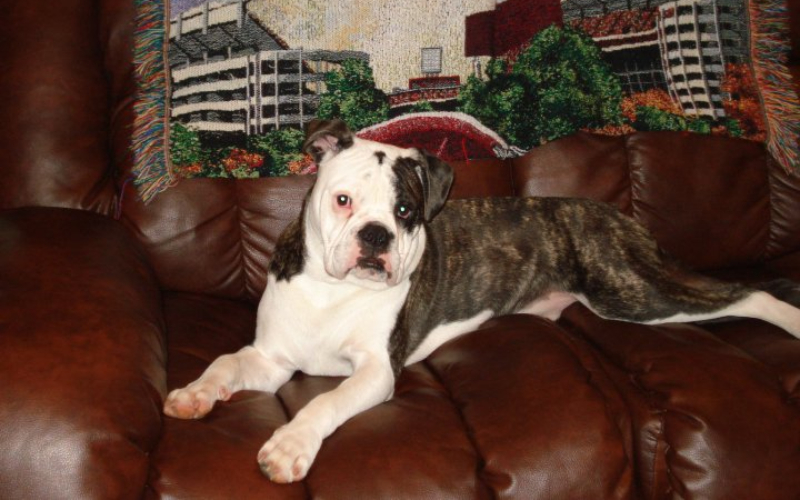Before we ever decided to have a child, we first decided to have a puppy. That puppy would grow to be 6 years old by the time our daughter was born. He was spoiled beyond any scale of necessity.
We rarely went places that he did not accompany us. And if we did, he got some type of treat when we returned. Although he was 60 pounds, he was still a lap dog most of the time and loved to cuddle.
He got all the attention all of the time.
And he was our first experience at caring for and keeping alive something other than ourselves.
Fast forward to my pregnancy and things started to change. He was no longer allowed in the bed with us because I was miserable and couldn’t sleep.
Then after her birth, our lives changed even more. We didn’t just spend the three nights in the hospital away from him initially after she was born, which really threw him for a loop.
When she was two weeks old, we started our month long stay at Children’s hospital. He stayed with my sister who he loved dearly.
But I know he must have felt like we had abandoned him completely.
Over that time span, I think I only came home and saw him once or twice.
Once we finally came home, I don’t think he really knew how to act. He was glad to see us. But at the same time, we had left him.
On top of that, there was a new person in the home that seemed to take all the attention.
And admittedly, we were just zombies for a while, going through the motions of living because we didn’t know what we were doing anymore.
Our home felt like a revolving door at times with all the different therapies our daughter was receiving.
And he didn’t know what to do with that either. He didn’t understand why someone would be coming over and not want to see him.
He never really bonded with our daughter, and to this day ignores her for the most part.
He’s not mean to her. He just tends to act like she isn’t there. Occasionally, he will let her pet him, but only for a short period of time and only when it is his idea.
I know this article is a bit off the beaten path, but I write just to show how special needs affects so much in the family life.
It affects the parents of course, and the siblings if there are any. It affects how the extended family and friends who are like family interact with you.
Some say nothing because they don’t know what to say.
Others over include because they don’t want you to think for one second that they are treating you different (even though you are obviously different).
It also changes the family dynamic in the best ways too. It makes families grow and exposes families to things they would otherwise never really know about.
It makes people more compassionate and patient. It makes people check their own lives sometimes and make adjustments.
But it also affects the family pets. They are usually the most loyal, but often times the last thought of.
As our puppy is approaching 11 this year, and our daughter is approaching 4, we have come a long way in this special needs parenting journey.
We are learning that no matter how hard it is, at times we have to take moments for ourselves. And we are also working on paying our first baby, our puppy, more attention these days.
He was our first experience with loving and caring for something day in and day out, other than each other.
He’s laid at the foot of our bed through the hard nights and been a should to cry on when the tears came.
Even though our daughter isn’t his favorite person, he still gets up with us at night if she is sick or cries out.
He’s celebrated the high points with us even if he didn’t understand what we were celebrating. And he is a constant source of comfort when we need it.
We were lucky to have him first, as he has been a big part of this journey for us. And our daughter is slowly starting to grow on him some.
I write this article mainly to say that if you have a pet the feels more like a person in your family, stop and show them a little extra love today.
They are a much bigger part of this journey than we tend to give them credit for. And occasionally we need to recognize them for that.
